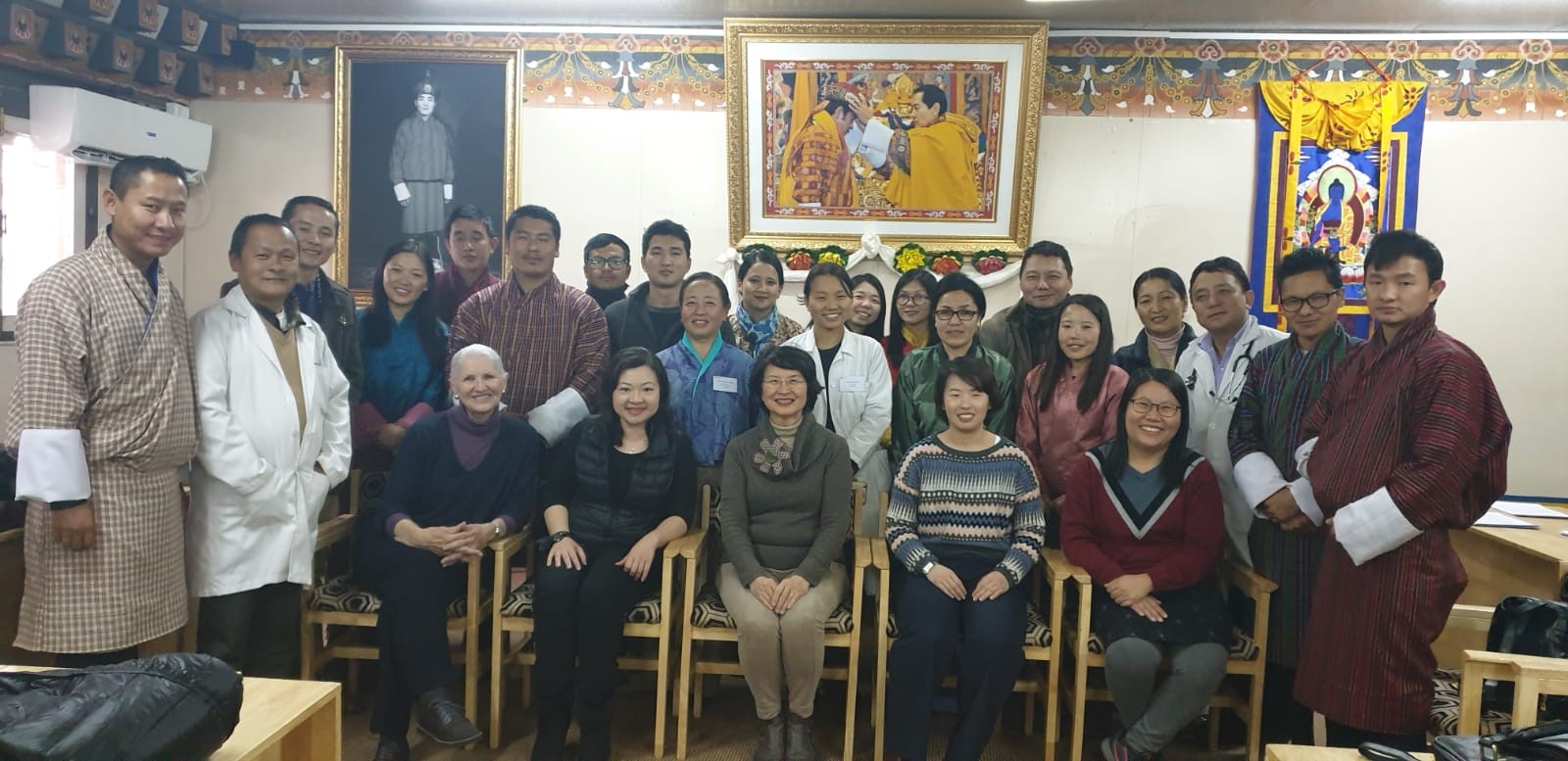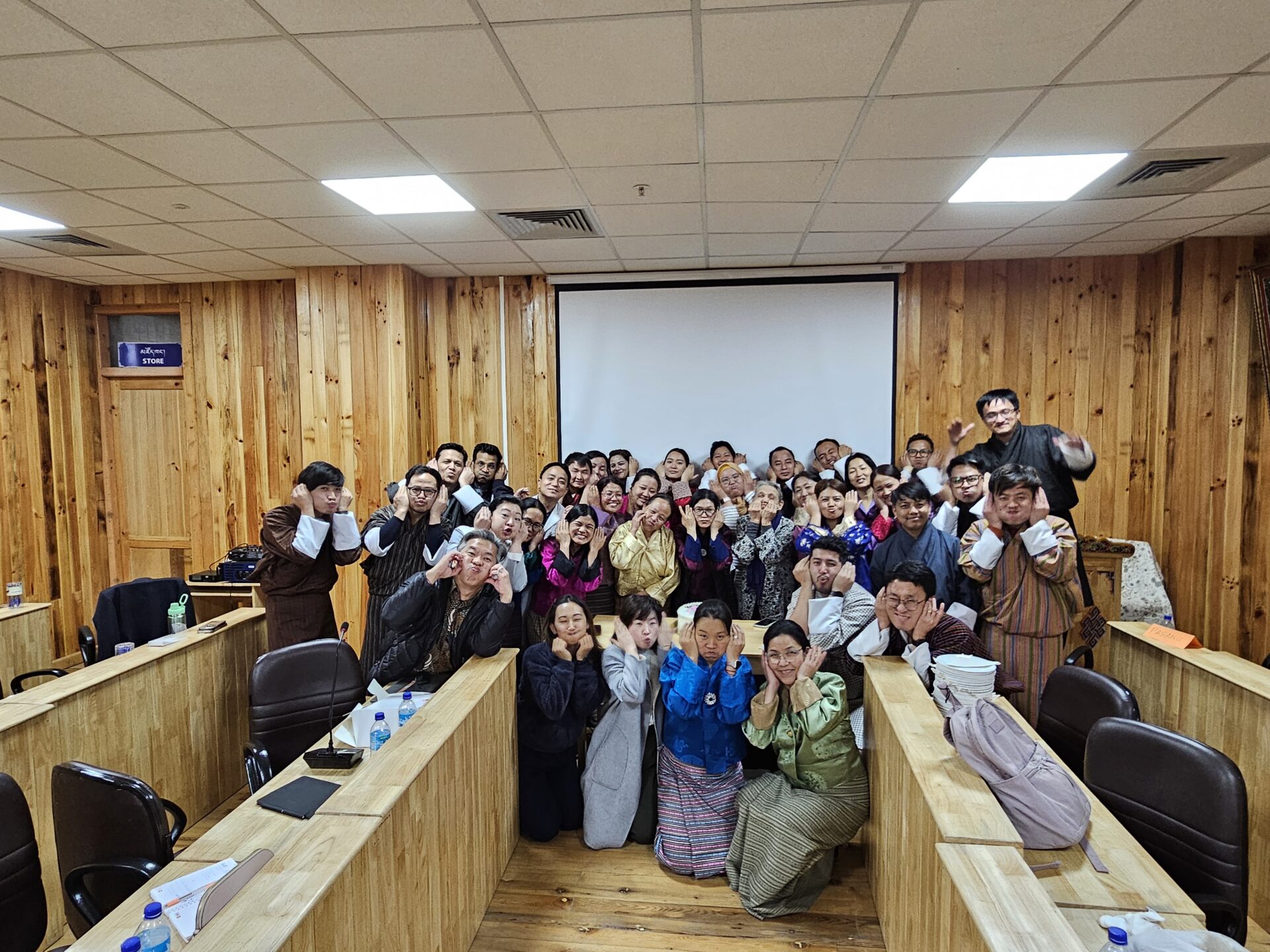In early 2017, my life was already full. I was a young mother to my firstborn, barely a year old, and at the same time, a first-year General Practice resident. Just when I thought I was learning how to balance motherhood with medicine, my world shifted. My paternal grandmother was diagnosed with locally advanced rectal cancer.
It was because of her age and other illnesses—COPD and cor-pulmonale, she was not fit for surgery or chemotherapy. The only option was to keep her comfortable. At that point, I had never heard of palliative care. It was not something we were taught in medical school, and I had no idea that my grandmother was, in fact, a palliative patient.
As a resident, I spent most of my days at the hospital. Luckily, I was posted in ENT, which was less demanding, and I could spend time with my grandmother by admitting her in the ward with permission from the head of department. My granny complained of constant pain, and I did what little I knew to ease it. Around the same time, Professor Cynthia Goh and her team came to Bhutan to conduct a palliative care workshop. I managed to attend a few sessions, focusing on pain management, hoping to apply whatever I learned to my grandmother’s care. I became the sole carer and doctor for my grandmother, of course I was grateful for all the support received from senior consultants, but we didn’t have palliative physicians in our country.
After three long months, she passed away one morning. I had gone home the night before to feed my baby, and when I returned at 7 a.m., she was in pain, stretching out her right hand to reach for me. She was not well in the days before, and I had already asked extended family members to be there. On the morning, my granny was in so much pain, and she reached for me, but I was held back by relatives, and in that heartbreaking moment, she took her last breath. I cried like a child lost in a crowded city. Even now, years later, that memory brings tears to my eyes.
Not long after losing my grandmother, I faced another devastating blow. My beloved father was diagnosed with late-stage stomach cancer and given only three to six months to live. By then, I was in my second year of residency, posted in pediatrics. Residency was stressful, but nothing compared to watching my father suffer. I wanted to drop everything to take care of him, and I almost did. The university finally granted me extended leave so I could be with my father.
It was during this time, in 2019, that palliative care once again came into my life. Professor Cynthia Goh visited Bhutan for the second time. She personally visited my father and taught me how to care for his symptoms. Later, Dr. David Nixon, a palliative physician from New Zealand, and his wife, a palliative nurse, also helped with my father’s care initially at our home and later we moved to ward as my father symptoms especially pain worsened and it was manageable at ward as I would easily call for help in the environment I was familiar with and my father was comfortable where I was close by, at least that was what I still think that my father was comfortable until the end. With their support, and the kindness of senior consultants at the hospital, my father’s pain was managed, and he passed away peacefully at noon on May 2nd, 2019.
That was the moment I knew none other than a palliative doctor could really help a terminally ill patient. I wanted to dedicate myself to palliative care, not just as a doctor, but as a daughter and granddaughter who had walked this painful road. With support from the Ministry of Health Bhutan and APHN, I was given the opportunity to pursue my dream in a year-long fellowship in Supportive and Palliative Care, and in November 2024, I returned home as Bhutan’s first trained palliative physician.
Since then, the journey has been both challenging and deeply meaningful. We have slowly expanded services at Jigme Dorji Wangchuck National Referral Hospital, home-based visits to ward consultations and, most recently, a dedicated palliative clinic and training for capacity building in the country. Resources are still limited but awareness in palliative services are growing with strong support from Ministry of Health and even more with each patient I care for reminds me why I chose this path.
Whenever I hold the hand of a patient in pain, I remember my grandmother reaching out to me. Whenever I sit beside a grieving family, I think of my father’s final days. Their memory lives on in every patient I and my team care for, guiding me and reminding me that this work is not just medicine, it’s love, dignity and humanity.
The journey of being a lone palliative physician in Bhutan has not been easy. There are days when work feels heavy and lonely. But there has never been a day when I doubted that this was my calling. My grandmother and my father showed me the way, and every patient kept me on the path.
Their memory lives on in every patient I care for, guiding me and reminding me that this work is not just medicine, it is love, dignity, and humanity. Today I am sure they are watching me from above as I lead my team in managing our patients and training for palliative care so that palliative care is assessable to everyone anywhere in the country.
The journey of being a lone palliative physician in Bhutan has not been easy. There are days when work feels heavy and lonely. But there has never been a day when I doubted that this was my calling. My grandmother and my father showed me the way, and every patient kept me on the path.
This is not just my profession—it is my life’s purpose. Looking back, what began as a moment of hope for my father has grown into a lifelong commitment to palliative care for patients and families in Bhutan. The journey has been one of learning, resilience, and service, honoring my beloved father’s memory, the mentorship of Prof. Cynthia Goh and Dr. Shirlynn Ho, and the unwavering support of colleagues and partners who continue to guide and inspire this work.



Written by Dr. Kinley Bhuti, Consultant General Practice, Ministry of Health Bhutan
